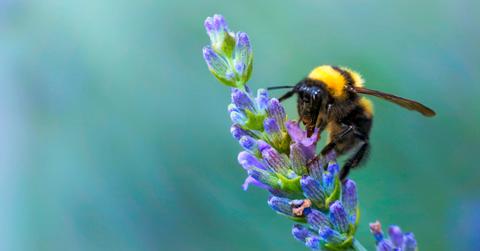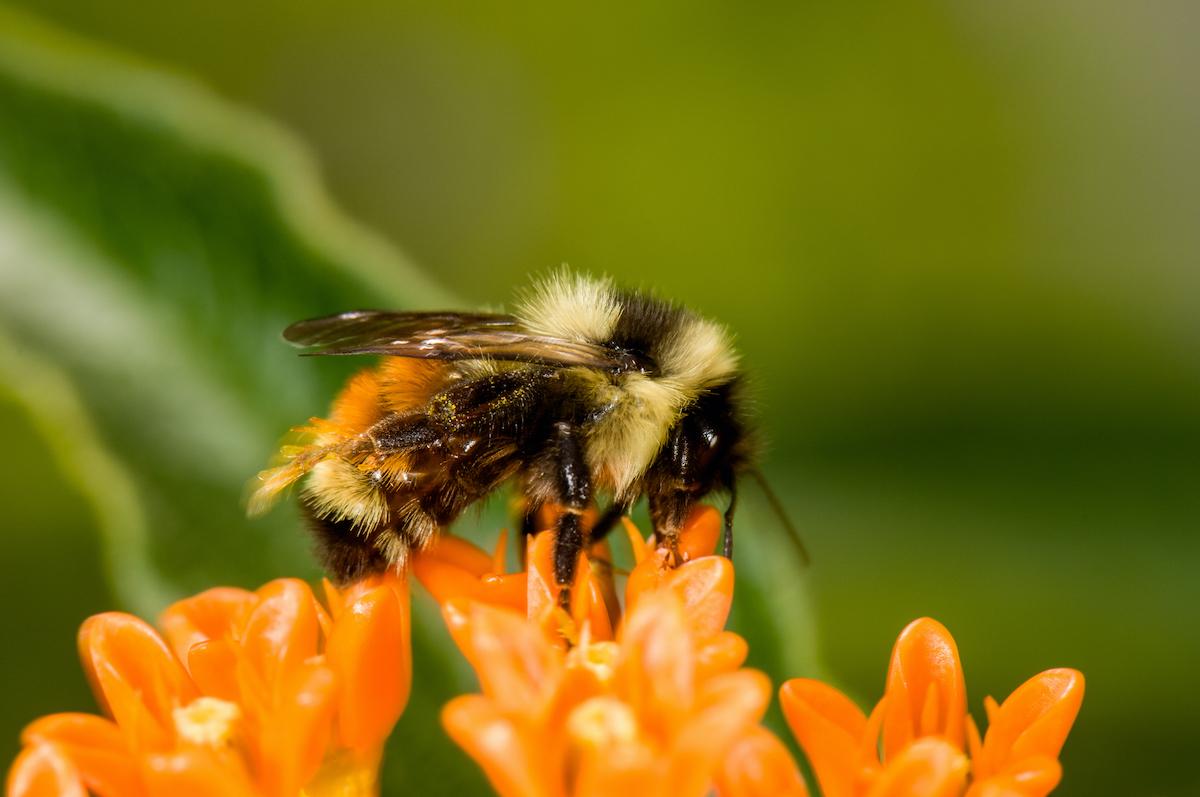Bees Adapt to Climate Crisis by Tricking Plants Into Blooming Earlier
Bumblebees may just be geniuses.
Updated May 26 2020, 11:55 a.m. ET

Bees just gave humans a whole new reason to fear them: their intelligence. According to recent research, bumblebees have been observed biting on the leaves of plants to help them flower faster. The reason? So the bees can feed on the plants' pollen.
As explained in the study, which was conducted by a team of Swiss scientists and published in the journal Science, bumblebees require pollen as a food source. So when pollen is in short supply, some bumblebees bite plant leaves in a specific way — and that can cause the plants to flower 14 to 30 days earlier than they would have otherwise, which provides bees with food, according to the researchers.
Why is pollen in short supply?
According to Earther, the climate crisis has caused bees to wake up earlier in the year than they used to. When they wake up early, not enough plants have flowered yet, so there is not enough pollen available for the bees naturally — which has inspired them to take matters into their own hands.
How are bees making plants bloom?

The scientists first observed bees who were being used for a separate experiment in their lab biting unflowered plants, according to Earther. They did some research, and found evidence of other bees exhibiting the same behavior; however, there was no conclusive explanation as to why bees did this. So, they set up a series of experiments to figure out why this was happening, both in the lab and outdoors (using commercial bumblebee colonies), as per Phys.
"Previous work has shown that various kinds of stress can induce plants to flower, but the role of bee-inflicted damage in accelerating flower production was unexpected," Mark Mescher, co-author and ETH Zürich professor, said in a statement as published by Phys. "On further investigation, we found that others had also observed such behaviors, but no one had explored what the bees were doing to the plants or reported an effect on flower production.”
After running each experiment, the researchers concluded that low pollen availability influences bees to damage plants that have not yet flowered, according to the study. And as Phys added, the researchers found that tomato plants bit by bees flowered 30 days earlier than those than unbit plants, while bit mustard plants flowered about 14 days earlier than unbit ones.
To see if it’s simply the act of puncturing the leaves that caused the plants to flower sooner, the researchers attempted to manually copy the bees’ biting patterns on unflowered plants' leaves. This caused the mustard and tomato plants to flower a bit earlier, but not as early as when the bees themselves bit on the plants — leading the researchers to believe that either the bees are doing something chemically to the flowers in addition to making bite marks, or perhaps the researchers’ “manual imitation of the damage wasn't accurate enough,” as study author Consuelo De Moraes told Phys.
Humans can't survive without bees.
Bees are one of the most important animals on Earth, as they pollinate many crops that humans depend on. In the U.S., around 75 percent of the fruits, vegetables, and nuts that humans eat require bee pollination, helping maintain food security; additionally, about 90 percent of plants around the world require pollination, as per the FAO.
Considering all the ways human activity is hurting bee populations worldwide — such as deforestation, habitat loss, pesticide use, the commercial honey industry, invasive species, and the climate crisis in general — it’s incredible that bees are finding ways to adapt.
Of course, it would be ideal if humans would instead stop all of our activities that hurt bee populations. But in the meantime, we can be grateful that bees are so brilliant and adaptable.